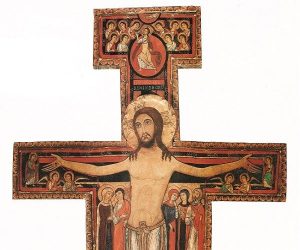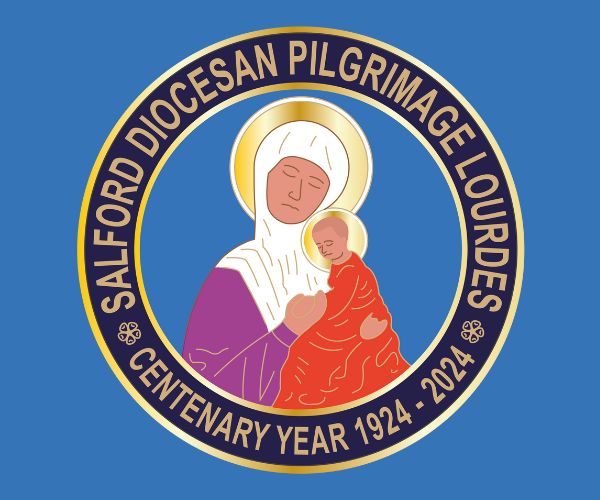
The Pope Video – The Mission of the Laity
Thursday 3rd May 2018This month the Pope has chosen to focus an issue that in Salford we have been putting at the centre of what we do – ensuring all members of the Church can use their own gifts and talents for the good of their parish. This is part of our programme for parishes – ‘Hope in the Future’.
This programme is our local answer to the call from Pope Francis that we show what we believe by our actions. So we are asking everyone no matter who they are, their age, skills or experiences to join us on our journey to create Mission Parishes. Parishes that are vibrant places for our community. That are places of welcome, where no one is forgotten and where we can all grow in our faith.
The Prayer Network’s – May’s Prayer Intention of the Holy Father
Since the outset of his papacy, Francis has frequently emphasised that Christians should think of themselves as “missionary disciples”; a key element of his 2013 document, “The Joy of the Gospel (Evangelii Gaudium)”. This is a choice that the Church needs to make, now, in the 21st century. He writes, in section 27, ““I dream of a ‘missionary option’, that is, a missionary impulse capable of transforming everything, so that the Church’s customs, ways of doing things, times and schedules, language and structures can be suitably channelled for the evangelisation of today’s world rather than for her self-preservation.” A church concerned only with self-preservation, which Pope Francis thinks we sometimes have become, simply cannot be missionary – and won’t transmit the joy of the Gospel to the world.
To be a “missionary disciple” means two things: one, that a person has formed a disciple’s relationship, a real relationship, with Christ and second, that she or he accepts the need to preach the gospel, as the Pope writes, “in virtue of [our] baptism”. He explains that, through baptism, “all the members of the People of God have become missionary disciples (cf. Mt 28:19). All the baptised, whatever their position in the Church or their level of instruction in the faith, are agents of evangelisation” (#120). Earlier in the document, he stated succinctly that ““The Church is herself a missionary disciple” (#40).
The May intention asks us to ponder specifically the lay mission. Frequently, Pope Francis has expressed his dislike for clericalism. If we approach the practice of our faith in a clerical mindset, then the great risk is that the lay faithful’s specific mission is reduced to merely “helping Father” and that can lead to lay people becoming clericalised themselves. There is a risk of creating a separate class or caste. The Pope is urgently encouraging us to resist whatever might disempower or even paralyze our evangelising mission. He emphasises that lay people must be allowed their proper responsibility. He specifically demands that the Church “create still broader opportunities for a more incisive female presence in the Church”
How, then, can an individual Christian come to know what her or his mission is? The answer is found both in the words of the Intention itself and in Pope Francis’s key themes, drawn from his Ignatian, Jesuit heritage: that of discernment. In the Intention we read of the “challenges that face the world today”. A close reading of the signs of the times, the state of the world, will show us what our mission must be. And if we practice discernment, rooted in prayerful reflection on experience and the generosity of our own hearts, we will find and fulfil our mission and respond with creativity.
Challenges for the month
- Discuss in the parish, family or friendship-circle, whether the mission of the laity in the Christian community is meant to be more of an internal service, or if it is through their presence in the world, as baptised Christians, that their mission is fulfilled
- How are parish or community schedules, meetings and initiatives planned? Is it necessary for lay people to use too much of their valuable personal and family time to engage in pastoral activities? What kind of balance can be made? Ponder this question.
- Think about a time of sharing with the more committed laity in your community or parish about their personal experience of taking the Gospel into their daily contexts. Let everyone share their experience and look at what emerges.
Prayer Moment
Ask the Spirit of God to lead you to a place of interior stillness. Try to find a few moments and an exterior place where you can be peaceful and prayerful, even if only for a few minutes. Become conscious of God looking at you, now. Rest in God’s gaze for a few moments. Bring to mind a situation known to you that might be an opportunity for ministry for you. Begin to consider, in this prayerful space, different possible courses of action open to you. Notice what attracts and enlivens you about possible strategies. Notice also when a possible outcome makes you feel uneasy or uncomfortable. Ask the Spirit of God for a pure heart and for the gift of discernment. Take careful note of what feelings arise in your heart as you do so. Do not judge or analyse them, but ask the Good Spirit to show you the deeper meaning they present.
Suggested Morning Offering prayer (or prayer to use at any time!)
Heavenly Father, I thank you for the gift of a new day. May the prayers of Mary bring us freedom this day, so that we will be able to share the joy of the Gospel with others. I offer this for the Pope’s Intention this month, in the Heart of Christ, in the power of the Spirit.



